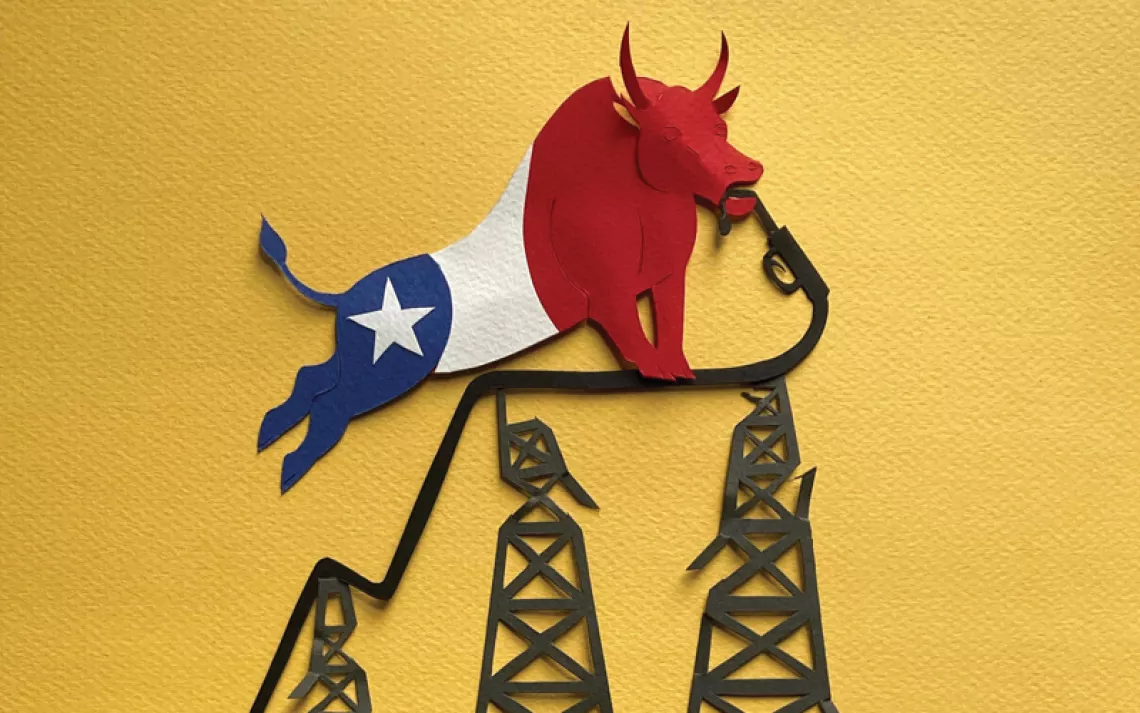What Divestment From Russia Means for Activism Against Fossil Fuels
It’s time to scale up fossil fuels divestment

Photo by Karla Cote/SOPA Images/Sipa USA via AP Images
In the first week of March, following Russia’s invasion of Ukraine, a cascade of industry leaders and state governments pulled their investments out of Russia. California divested a combined $1.5 billion from its two largest state pension funds and the University of California retirement systems. Other states, from Pennsylvania to Oregon, and tech industry leaders like Uber followed suit. Most notable, both BP and Shell gave up their stakes in Russian oil and gas projects.
The rush to withdraw investments from Russia echoes previous divestment movements, including the ongoing struggle to divest from fossil fuels. Only this time, it took days to mobilize entire industries, in comparison to the decade-strong fossil fuels divestment movement.
“I’m stunned at how fast it’s happened,” said Gay Seidman, a sociologist researching economic change and development at the University of Wisconsin–Madison.
There are clear differences between the fossil fuels divestment movement and what’s happening now, namely, the US government’s unambiguous stance on Russia’s invasion of the Ukraine. Still, the rapid mobilization of entire industries demonstrates how quickly divestment can happen when industry actors are motivated to act—and the power of money to shape global conversations.
As an activism strategy, divestment has its roots in the anti-apartheid movement of the 1970s and 1980s, when students put pressure on banks to remove their investments from South African industry. Over the course of nearly 10 years, almost $350 million in investments was withdrawn from South Africa. The financial impact swayed the country’s financial elites—concerned about the effects on industry, business leaders began to speak out against the apartheid regime. Back in the United States, the visibility of divestment activism brought apartheid to the fore and pushed the US government to press sanctions on South Africa. “It kept the conversation going,” said Seidman, who participated in anti-apartheid activism. Decades later, Bill McKibben drew inspiration from this movement when he kicked off fossil fuels divestment on college campuses.
Divestment was a frustrated response to governments’ unwillingness to place sanctions on South Africa, and later their lack of action on climate change. That’s not the case today. Business and state governments have responded to a very clear stance from worldwide leaders. Still, divestment from Russia has given momentum to the international support of Ukraine, Seidman said. One week after BP and Shell announced their divestment from Russia, President Biden, previously reluctant to turn down fossil fuels from Russia, announced a ban on Russian oil. It’s impossible to say whether divestment encouraged this ban, but it’s certainly possible, Seidman said.
“It shows the power of companies to signal an emergency,” Seidman said, “It’s made people look at what’s going on in Ukraine in a way that words don’t, because we live in a globalized economy and we’re all going to be affected by this.”
Much of the criticism of the fossil fuels divestment movement has focused on whether it actually has a financial impact on the oil and gas industry. That’s not the point, said Olaf Weber, a professor at the University of Waterloo in Canada. It’s true that if someone sells their shares, someone else will buy them, and it’s unclear whether divestment can indeed financially harm whole governments or industries, Weber said. (Case in point: Shortly after BP exited Russia, Dutch Shell bought up cheap shares on Russian oil.) But at the end of the day, divestment is about social signaling, and it works.
The rush to withdraw from Russia also shows that industry is willing to take a real hit if it means that they appear to stand on the right side of history. Oil giants stand to lose vast sums of money by divesting from Russia, Weber said. Yet “smart businesses like BP or Exxon or Shell are recognizing that if they continue to work in Russia, they’re going to be seen as propping up Russia.”
So the question is, Why don’t these same companies feel as strong of a moral imperative to stand on the right side of history when it comes to the climate crisis? The obvious answer: They’d lose money anyway if they stayed invested in Russia, whereas fossil fuels investors will continue to profit from oil and gas indefinitely, Weber said. Plus, investors would take a much larger hit divesting from fossil fuels.
But one could also argue that we’re in the same situation with climate change—albeit on a larger time scale. Everyone, oil and gas giants included, will eventually lose in the climate crisis.
Although international attention is focused on Ukraine and Russia, now is the time to scale up the movement toward fossil fuels divestment, not scale it back, Seidman said. Watching President Biden’s recent State of the Union address, Seidman was shocked by his silence on climate change. Meanwhile, US oil companies are using the loss of Russian oil and gas as an opportunity to argue for increased oil and gas exploration. If the current movement to divest from Russia can teach us anything, it’s how loud money speaks. Amid crisis, divestment has the power to keep climate change, and the danger of our dependence on fossil fuels, in the conversation, Seidman said. “It’s a moment when the fossil fuels divestment movement has to be louder than ever.”
 The Magazine of The Sierra Club
The Magazine of The Sierra Club



